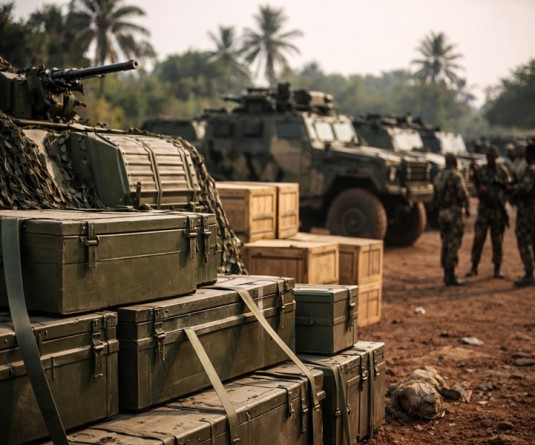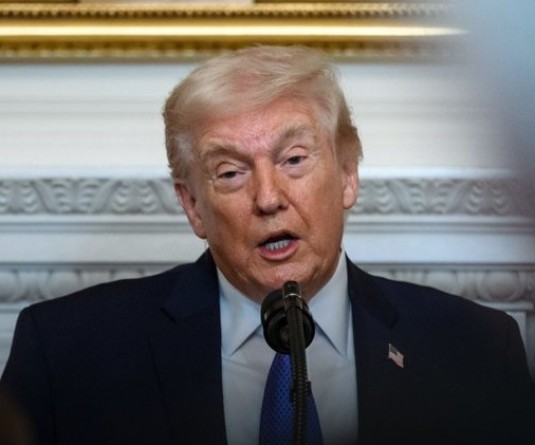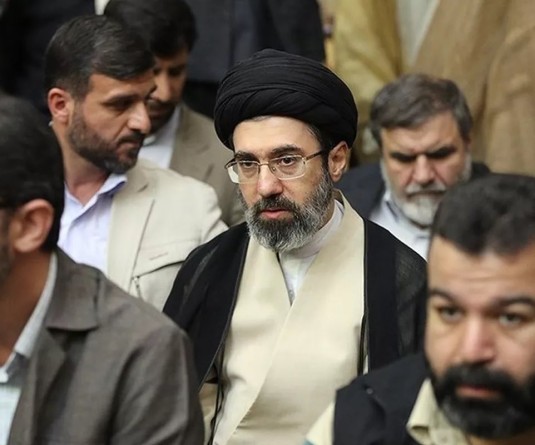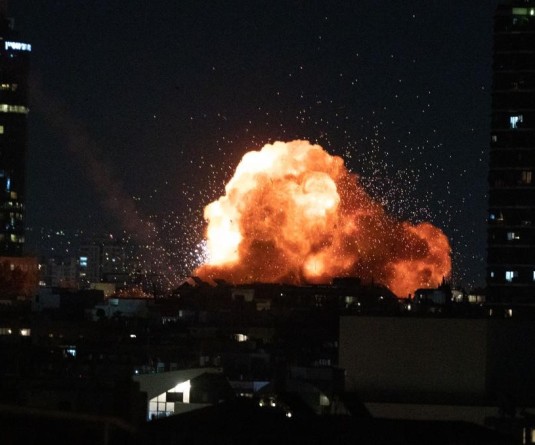
ISLAMABAD , February 9 (AP): Aides to Pakistan's president expressed confidence Wednesday that Islamabad and Washington could amicably resolve a growing diplomatic crisis over the fate of a former U.S. Special Forces soldier held in the shooting deaths of two Pakistanis.
None, however, would directly respond to statements from Washington that billions of dollars in U.S. aid to Pakistan could be threatened and diplomatic contacts curbed if the American is not released quickly. Washington maintains that the man, identified by Pakistanis as 36-year-old Raymond Allen Davis, has diplomatic immunity and shot the two Pakistanis in self-defense when they tried to rob him.
Pakistani officials — eager to avoid popular backlash in a country where anti-Americanism is rife — have said the matter is up to the courts to decide, even though the U.S. insists the man's very detention is illegal under international agreements. The dispute has escalated into a full-blown diplomatic crisis between the two counter-terrorism allies, whose relationship could determine the outcome of the war in Afghanistan.
On Tuesday, U.S. officials said the Obama administration had suspended some high-level contacts with Pakistan and may downgrade the status of a meeting in Washington later this month because of the Davis case. Two top Republicans on the House Armed Services Committee said U.S. aid to Pakistan is in jeopardy if the American is not released. But Pakistani officials insisted Wednesday the situation could be resolved through proper diplomatic channels.
"Pakistan and the U.S. are strategic partners and we expect to work out our differences on this matter," said Farahnaz Ispahani, an aide to Pakistani President Asif Ali Zardari. Presidential spokesman Farhatullah Babar echoed that sentiment, but also said the length of time it's taking for the Foreign Ministry to decide if Davis has immunity suggests "it is not really a case of just black and white."
Initially confusing statements from Washington, combined with long-circulating conspiracy theories in Pakistan about American mercenaries on the loose here, has inflamed public opinion over the case.
Anti-U.S. protesters have demanded that Davis be hanged, while the wife of one of the men he shot committed suicide, saying beforehand she was worried Davis would be freed. After first saying Davis was an employee of the U.S. consulate in Lahore, the U.S. then said he was an employee of the embassy in Islamabad, working as "administrative and technical staff. " A senior U.S. official has told The Associated Press that Davis was authorized by the United States to carry a weapon, but that it was a "gray area" whether Pakistani law permitted him to do so. According to records from the Pentagon, Davis is a former Special Forces soldier who left the army in August 2003 after 10 years of service. A Virginia native, he served with infantry divisions prior to joining the 3rd Special Forces Group in Fort Bragg, North Carolina. In 1994, he was part of the U.N. peacekeeping force in Macedonia. His record includes several awards and medals, including for good conduct.
Public records also show Davis runs a company with his wife registered in Las Vegas called Hyperion Protective Services, though it was not immediately clear whether the company has had many contracts with the U.S. government. The U.S. Embassy in Islamabad has not revealed exactly what sort of work Davis did for them or what he was doing in Lahore. However, the Embassy says he has a diplomatic passport and a visa valid through June 2012.
None, however, would directly respond to statements from Washington that billions of dollars in U.S. aid to Pakistan could be threatened and diplomatic contacts curbed if the American is not released quickly. Washington maintains that the man, identified by Pakistanis as 36-year-old Raymond Allen Davis, has diplomatic immunity and shot the two Pakistanis in self-defense when they tried to rob him.
Pakistani officials — eager to avoid popular backlash in a country where anti-Americanism is rife — have said the matter is up to the courts to decide, even though the U.S. insists the man's very detention is illegal under international agreements. The dispute has escalated into a full-blown diplomatic crisis between the two counter-terrorism allies, whose relationship could determine the outcome of the war in Afghanistan.
On Tuesday, U.S. officials said the Obama administration had suspended some high-level contacts with Pakistan and may downgrade the status of a meeting in Washington later this month because of the Davis case. Two top Republicans on the House Armed Services Committee said U.S. aid to Pakistan is in jeopardy if the American is not released. But Pakistani officials insisted Wednesday the situation could be resolved through proper diplomatic channels.
"Pakistan and the U.S. are strategic partners and we expect to work out our differences on this matter," said Farahnaz Ispahani, an aide to Pakistani President Asif Ali Zardari. Presidential spokesman Farhatullah Babar echoed that sentiment, but also said the length of time it's taking for the Foreign Ministry to decide if Davis has immunity suggests "it is not really a case of just black and white."
Initially confusing statements from Washington, combined with long-circulating conspiracy theories in Pakistan about American mercenaries on the loose here, has inflamed public opinion over the case.
Anti-U.S. protesters have demanded that Davis be hanged, while the wife of one of the men he shot committed suicide, saying beforehand she was worried Davis would be freed. After first saying Davis was an employee of the U.S. consulate in Lahore, the U.S. then said he was an employee of the embassy in Islamabad, working as "administrative and technical staff. " A senior U.S. official has told The Associated Press that Davis was authorized by the United States to carry a weapon, but that it was a "gray area" whether Pakistani law permitted him to do so. According to records from the Pentagon, Davis is a former Special Forces soldier who left the army in August 2003 after 10 years of service. A Virginia native, he served with infantry divisions prior to joining the 3rd Special Forces Group in Fort Bragg, North Carolina. In 1994, he was part of the U.N. peacekeeping force in Macedonia. His record includes several awards and medals, including for good conduct.
Public records also show Davis runs a company with his wife registered in Las Vegas called Hyperion Protective Services, though it was not immediately clear whether the company has had many contracts with the U.S. government. The U.S. Embassy in Islamabad has not revealed exactly what sort of work Davis did for them or what he was doing in Lahore. However, the Embassy says he has a diplomatic passport and a visa valid through June 2012.






